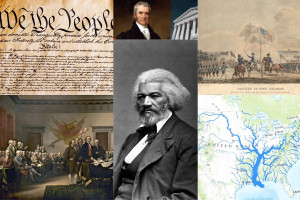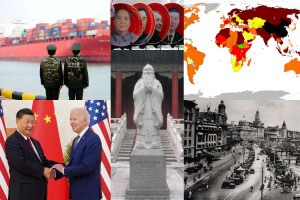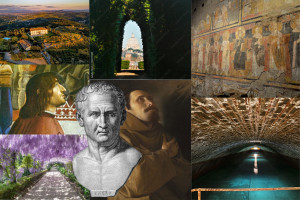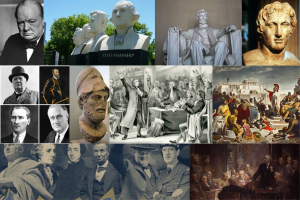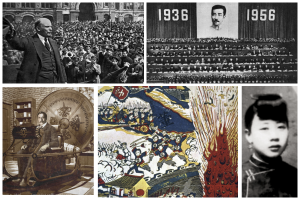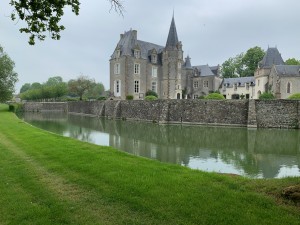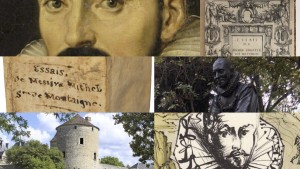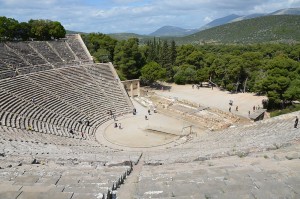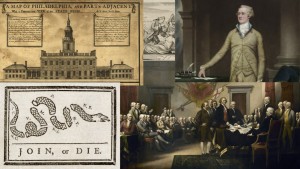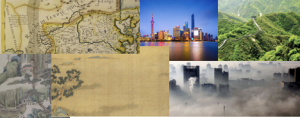Welcome to EverScholar
Come back to the classroom and once again be a part of the fabric of learning as you immerse yourself in a life-changing program of study, camaraderie, and joy. Brilliant seminars, world-class professors, and the hidden glories of colleges, universities, and cultural institutions await you.
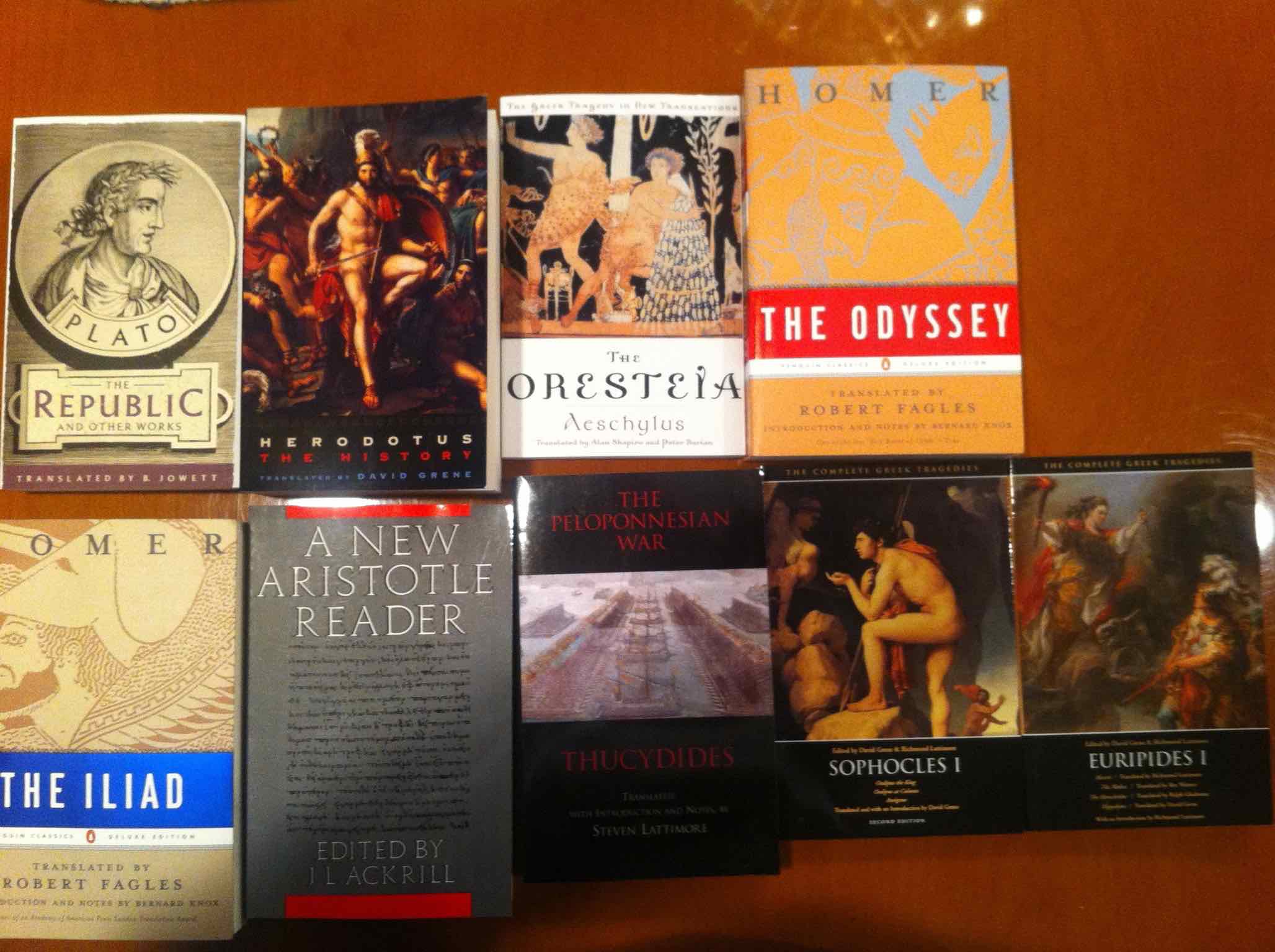
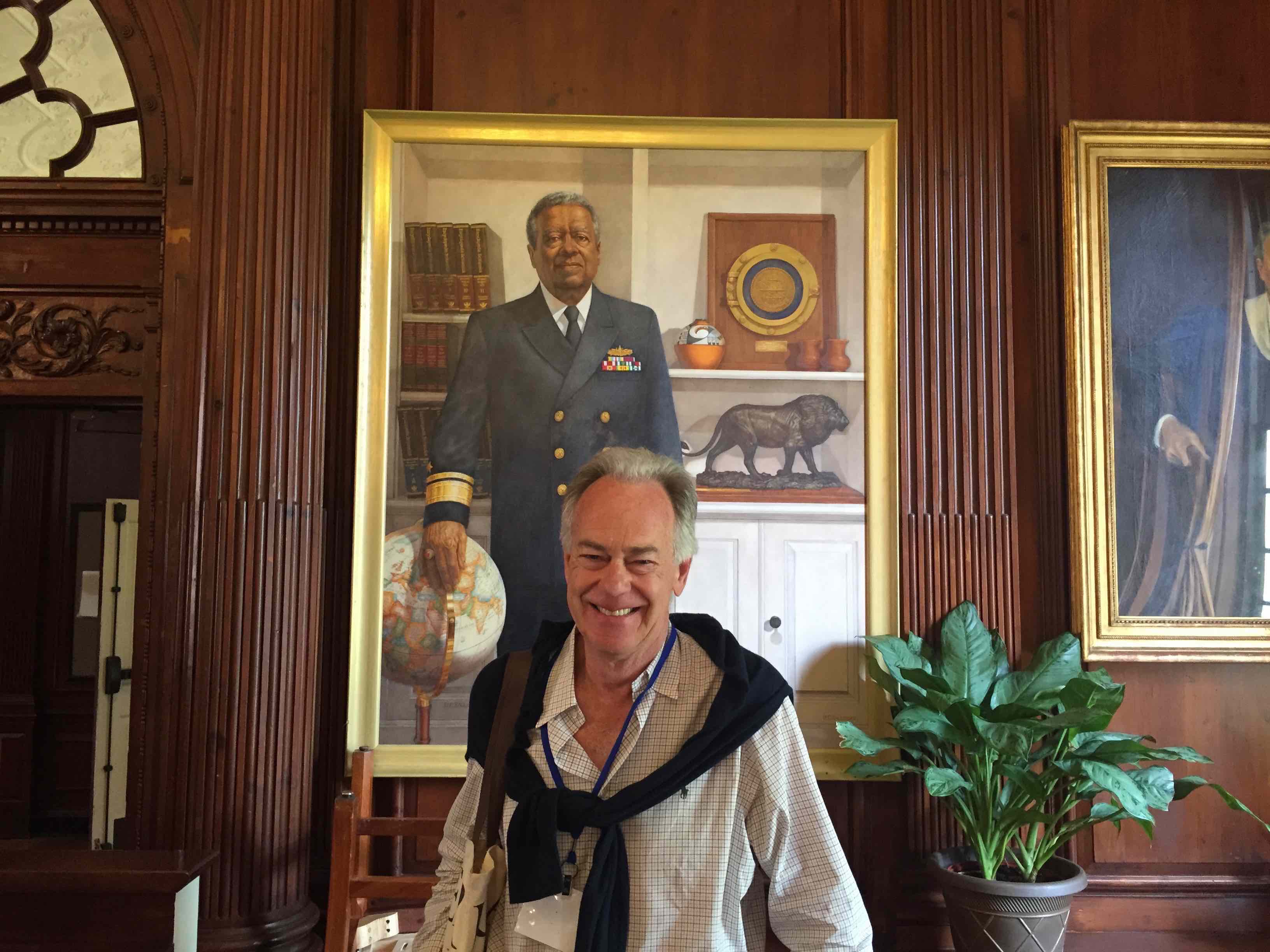
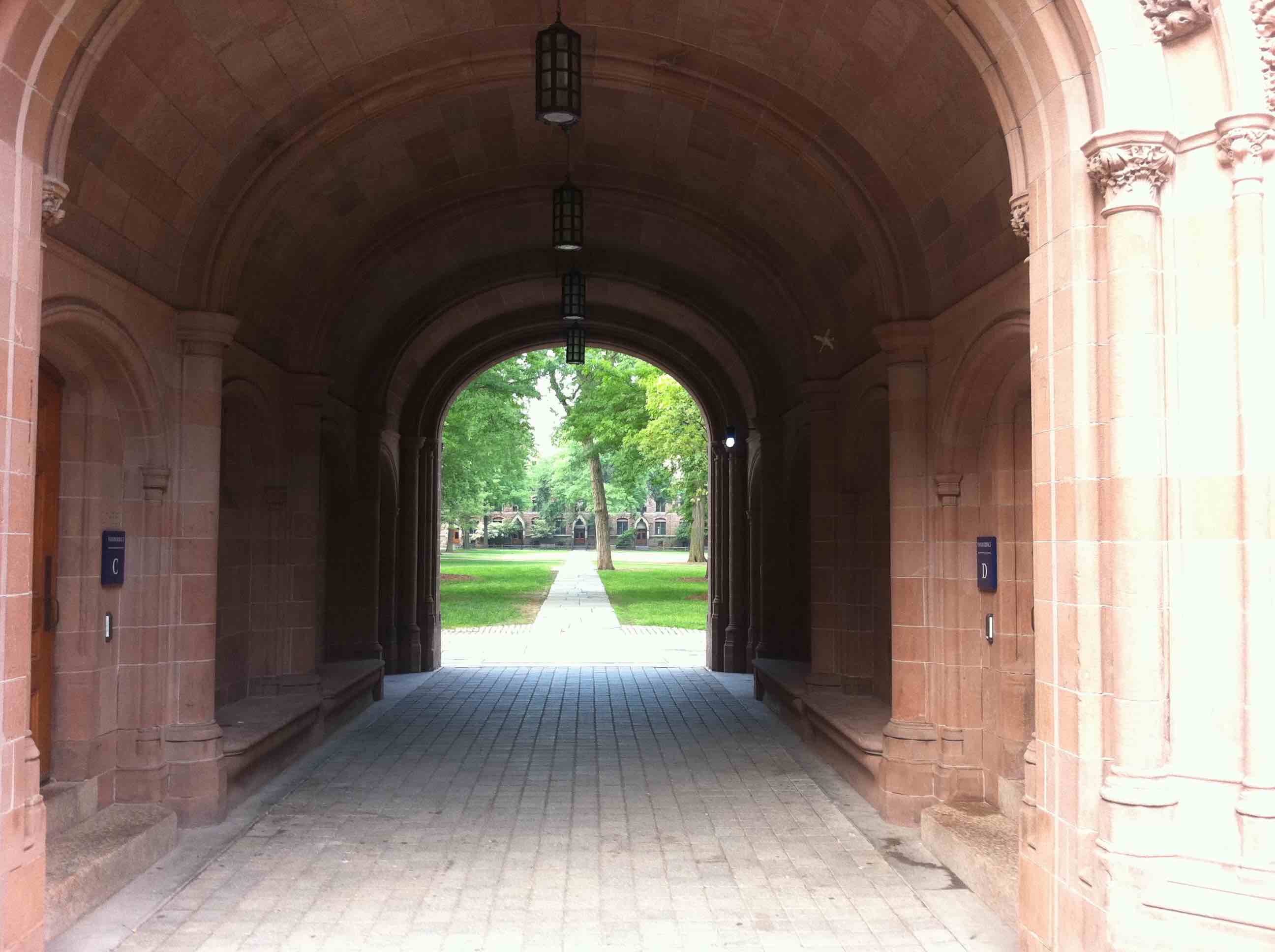
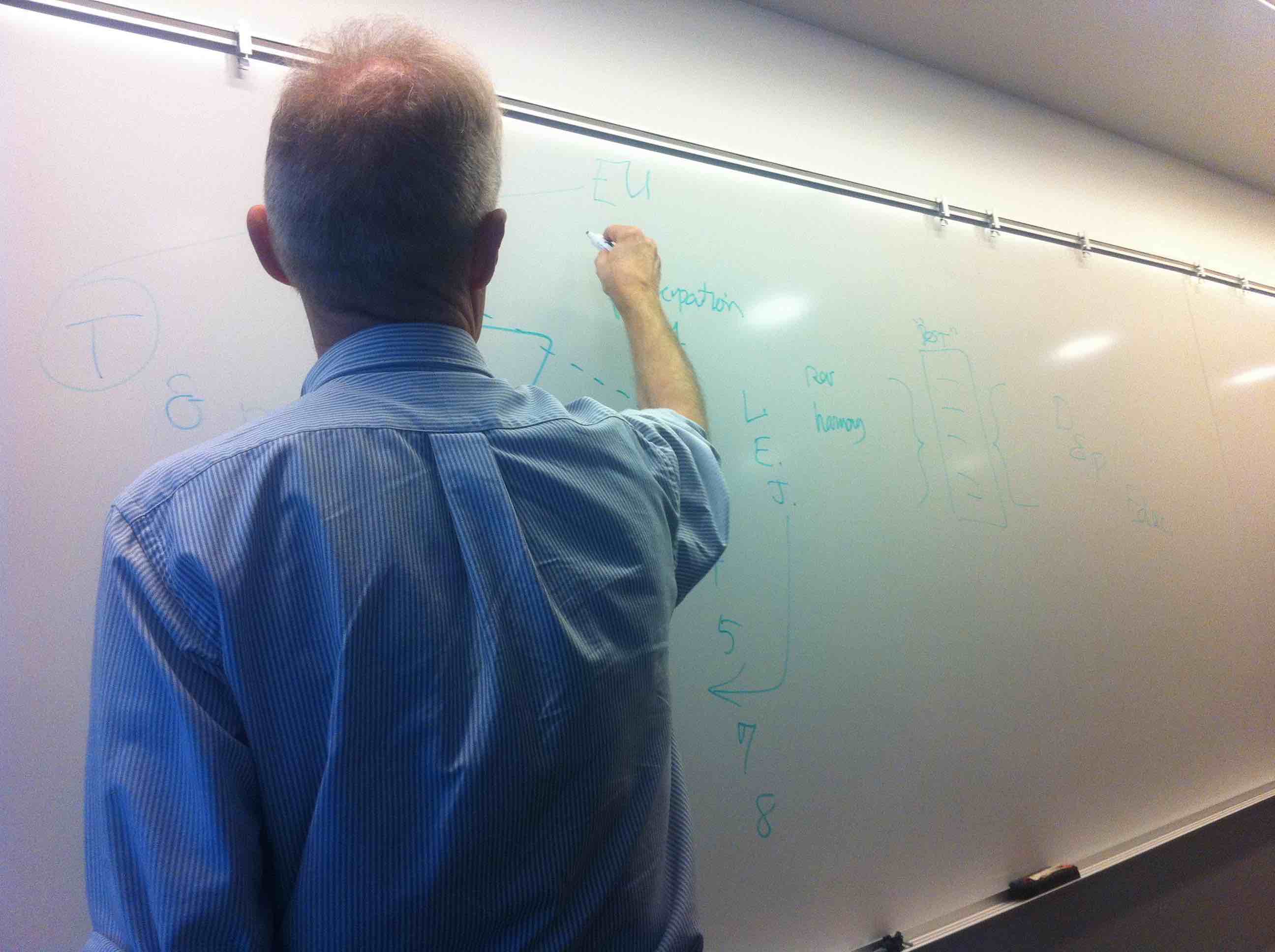
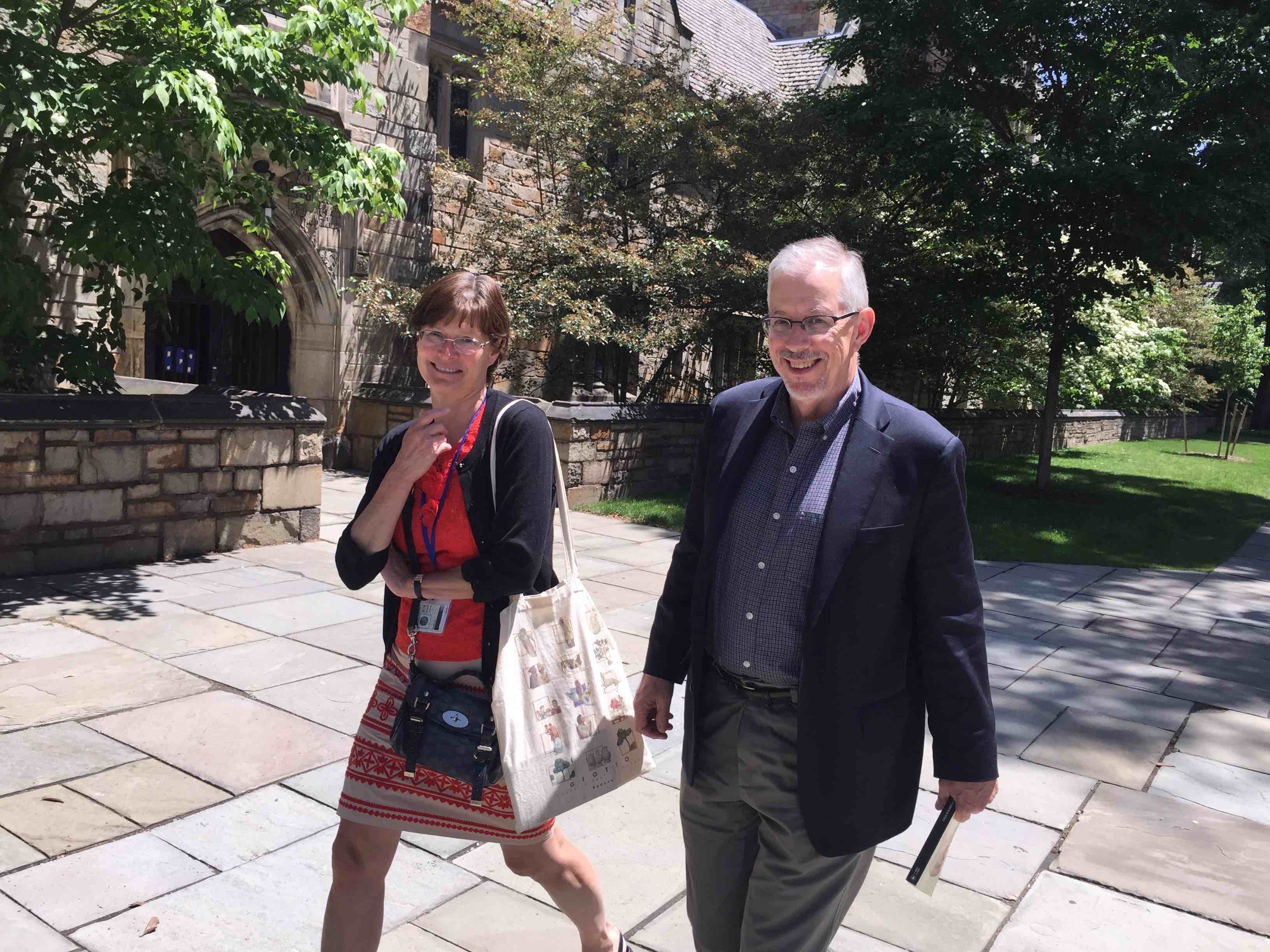
Several of our amazing EverScholar faculty speak about the program and their experiences.
Watch and listen as Steve Tomlin talks about his EverScholar experiences.
Learn about our Current, Upcoming, and Past Programs
EverScholar programs all preserve the small class, seminar experience. Below, see upcoming courses along with details on some past courses. Click on the courses to learn more!
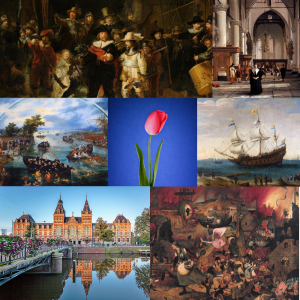
The Golden Age of the Netherlands
Professors: Paul Grimstad, Peter Koudjis, Marteen Prak, Claudia Swan
October 10-18, 2026
Amsterdam and The Hague, The Netherlands.
“Look around, look around, at how lucky we are to be alive right now.”
So sang the Schuyler sisters in Hamilton, but they might as well have been residents of the Dutch Republic of the 17th century. At that magical moment, in an unlikely place, something new emerged in the world after a great war of independence. A power without a ruling monarch; the advent of great prosperity and economic innovation that would reverberate for centuries; great steps towards democracy; a corporation that conducted world trade and exercised world power; a people without a true aristocracy; tremendous scientific innovation; unprecedented religious toleration; and an influx of immigrants from far and wide that created a pluralistic society that was envied and feared. Was that Hamilton’s America? No, it was the Dutch Republic, having freed itself from its Spanish rulers after an 80 year war. This amazing entity exploded with innovation and creativity, and while America had to content itself with a John Trumbull as its artistic spokesman, the Netherlands had Rembrandt. America had the Bank of the United States, but the Dutch had the first stock market. America became a land of immigrants a century later, but the Dutch welcomed Jews, Protestants, the great Enlightenment thinkers, scientists – the greatness of Europe and beyond. International law was invented there and then; it had to be, as a new crossroads of the world came into being. EverScholar invites you to immerse yourself in a time and place that rivaled Ancient Rome and the Italian Renaissance as a time of human advancement. You will learn together with a team of scholars that combine disciplines just as this age of mixing did. Economic history; art history; political history; cultural and social history; and legal history – all made enormous strides at once, and our faculty span those areas and more. There is a remarkable concentration of institutions related to these developments in this small area. Museums, palaces, architecture, religious structures, memorials, and of course, the ever-present water. We will see them together, in the intimate, EverScholar-level elite access that our programs invariably achieve. To this end, we have assembled a team of four(!) brilliant, world-class, renowned scholars, honored diplomats, valued advisors, recognized experts, and beloved teachers. We invite you to peruse our faculty’s bios – then imagine yourself in class, at dinner, and visiting key historical, cultural, and diplomatic sites with Maarten Prak, the greatest living Dutch historian of the Golden Age, or Claudia Swan, master of Dutch art and material culture, or Peter Koudjis, whose economic history expertise fans out to encompass everything from immigration to the world’s first stock market, and Paul Grimstad, who sees the influence of the great Spinoza at every turn – and Spinoza’s own influences, as well. The Netherlands is clearly the perfect place to conduct our exploration, and we will take advantage of its innumerable on-point resources to enhance our program at every turn. This is the absolute best way to tackle a topic that is at once seductive and yet resists even a precise definition: by immersing ourselves in it, with a group of great and experienced minds, day after day, seminar after seminar, formally and informally. Your fellow EverScholars will join you on this journey, and at its end, will continue to join you, now as new lifeline learners.
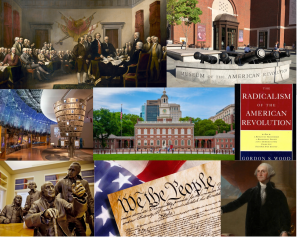
Authoring America
Professors: Gordon Wood, Akhil Reed Amar, Kermit Roosevelt III
March 5-8. 2026
Registration will open later this week!
Philadelphia, PA
What would you do if you were commemorating the 250th anniversary of America’s birth? EverScholar accepted the challenge, and to meet it, we will travel to the very site of America’s birth – Independence Mall in Philadelphia- and bring the greatest living scholars of the founding and its founding documents for a deep dive into the words themselves in deep conversation with the historical forces that brought them into being. Was it America itself that wrote the Declaration of Independence, that brought 13 state constitutions into being, that eventually placed above them the federal Constitution we know today as “THE Constitution?” What were these forces that brought them forth, in this place and time? What did subsequent generations do with this birthright, and what remains of it?
The imperative of addressing these questions has brought forth the very best scholars America has to offer. This is your chance to study in close conversation with Professors Gordon Wood, Akhil Reed Amar, and Kermit (Kim) Roosevelt III. Wow! Imagine going over the Declaration word by word with the very experts who have written definitive works on those very words! And when the seminars for the day are done, we will visit the Museums and Monuments – “the rooms where it happened” – and again, with our professors along for insight as well as elite guides and curators.
This special EverScholar program will fill immediately, we are certain so be sure to join the email list above and watch for the registration window of opportunity. Join us!

The Gilded Age and The Dawn of The American Century
Professors: Paul Grimstad, Esther da Costa Meyer, and David Nasaw
November 13-16, 2025
Course is completed; however, it will be offered again in 2026!
New York, NY
EverScholar invites you to join us for an immersive and collegial long-weekend experience in the opulent palaces of New York City as we explore the “Gilded Age.” This period from the end of the Civil War to the early 20th century was a time of explosive growth, innovation, artistic ambition, and deep societal change that defined America’s emergence as a modern economic and cultural power. But in true EverScholar fashion, in the era’s epicenter where this history still lives, and led by our world-renowned faculty, we will go far beyond the popular, even clichéd, understanding of the era, delving into the art, architecture, literature, philosophy, and of course the history of this transformative era.
Together we will convene, reside, study, dine, and socialize in NYC’s most impressive examples of Gilded Age architecture and history: brilliant and exclusive private clubs designed by the era’s most prestigious firm of McKim, Mead & White. In these storied settings—once frequented by the very elites we’ll be studying—you’ll engage in nine highly-participatory seminar-style sessions led by world-class faculty from Yale, Princeton, and CUNY. And more of the city’s Gilded Age gems will extend our ambit on our daily afternoon field trips to special places and collections available only to true scholars.
Our study topics will include Henry James’ visionary and nostalgic literature, his brother, William’s, spawning of American psychology; the rise of international financial and cultural networks (and, significantly, the emergent role of women in the latter); the creation of public spaces, philanthropic cultural institutions, and national identity; and the more socially troubling aspects around “conspicuous consumption,” immigration, race, and labor division. But this barely scratches the surface.
As always with EverScholar, you’ll join your intellectually curious peers in an intimate, discussion-based setting. This is a rare opportunity (I should mention that each experience is bespoke and typically one-time-only) to study history where it happened, with direct access to exclusive private spaces, rare artifacts, and the estimable scholars who bring them to life. Whether you’re drawn to art, architecture, politics, literature, philosophy, or maybe even gardening ;-), this course is for you. Noting that the roller coaster was invented in this era, and that spaces are extremely limited, get ready to studiously hop on board for our own intellectual wild ride together this November.

Machiavelli’s Continuous Renaissance
Professors: Steven B. Smith, David Ragazzoni, Vickie Sullivan, Francesca Trivellato, and Michelle Clarke
October 9-12, 2025
Course is completed; however, it will be offered again in 2026!
Boston/Cambridge, MA
Widely associated with the idea of power politics, Machiavelli’s name has become synonymous with deceit, cunning, lying, and betrayal. He is conventionally associated with a hard-hearted realism, and a belief that what ultimately matters in politics is the ability of leaders to prove successful, no matter how ruthless their actions might be. Our purpose in this course will be to explore the many dimensions of Machiavelli’s novelty, reclaiming its complexity and nuance against simplistic and one-dimensional readings. We will analyze and compare his different writings (The Prince, Discourses on Livy, Florentine Histories, among others) against the backdrop of Renaissance Florence and its political and intellectual history under the (in)famous Medici dynasty. We will study Machiavelli’s ideas on political founding, greatness and decline, the relationship between morality and politics, the importance of public opinion for political leaders, and the role of chance and virtù in human affairs. We will discuss his views on socio-economic conflict in ancient and modern republics, the nature and perils of factions, the role of religion in politics, and his overall philosophy of history. Finally, we will trace the afterlives of his ideas both in political philosophy and on the battleground of political ideologies over the centuries, discussing countless appropriations, (mis)readings, and critical encounters with his work into our present.
Grand Strategies and Grand Statesmanship
Professors: Sir Philip Bobbitt, Patricia Clavin, Sir Christopher Clark, Toby Lanzer, Rana Mitter, and Arne Westad
June 14-22, 2025
London and Oxford, United Kingdom.
Course has completed.
How do statesmen think about strategy? What are the factors – politics, economics, culture – that shape their idea of grand strategy and what acceptable or desirable outcomes might be? These questions have intrigued political thinkers and actors for millennia, and now, EverScholar ponders them with a team befitting the enormity of the topic – and with you.
This course examines timeless questions, approaching them by querying different ideas of strategy across the 20th century, placing them in historical and cultural context. We examine what states want, and how they express it through the choices and actions of political and military actors and thinkers, concentrating on periods of hot and cold war. In doing so, we shall explore the people, ideas and practices that shape the past, present and likely future of grand strategy in the modern world.
We look at both theory and practice at every turn. Our structure is that of case studies, specifically, three pivotal 20th century historical moments and their associated strategic challenges, choices, and key statesmen.
To this end, we have assembled a team of six(!) brilliant, world-class, renowned scholars, honored diplomats, valued advisors, recognized experts, and beloved teachers. We invite you to peruse our faculty’s bios – then imagine yourself in class, at dinner, and visiting key historical, cultural, and diplomatic sites with Sir Philip Bobbitt, advisor to seven US Presidents, or Arne Westad, head of Yale’s legendary Grand Strategy program, or Patricia Clavin, acclaimed Oxford historian of the League of Nations, just for some examples.
The United Kingdom is the perfect place to conduct our exploration, and we will take advantage of its innumerable on-point resources to enhance our program at every turn.
This is the absolute best way to tackle a topic that is at once seductive and yet resists even a precise definition: by immersing ourselves in it, with a group of great and experienced minds, day after day, seminar after seminar, formally and informally. Your fellow EverScholars will join you on this journey, and at its end, will continue to join you, now as new lifeline learners.
Reverberations of the Revolution II
Professors: Akhil Reed Amar, Gordon Wood, and Benjamin Barasch
March 21-24, 2024
Yale Law School, New Haven, CT
Course has completed.
The course will examine greatest event in American History – the American Revolution – and assess its revolutionary nature, its radicalism its transformative character, its aftermath and echoes through the early 19th Century.
By 1776 Americans knew they were launching a grand experiment in republican government. They were confident they could by their own efforts remake their culture, create anew what they thought and believed. Their Declaration of Independence told them that their equal status at birth did not determine what they might become. Suddenly, everything seemed possible. The revolutionary leaders were faced with the awesome task of creating out of their British heritage their own separate national identity. Americans now had the opportunity to realize an ideal republican world, to put the Enlightenment into practice, to create an ordered virtuous society and an illustrious classical culture that men since the Greeks had yearned for.
Little worked out in the way the Revolutionary leaders expected. By the third decade of the nineteenth century it seemed to many that American society was coming apart. So – what are we to make of the Revolution, all in all? Beyond the Revolution’s own ideas and ideals, we will also look at those ensuing decades, and see how all these things shaped the new republic; whether and which ideals were enduring and remained influential; whether they were hollowed out or even abandoned; and what all this means for the so-called “idea of America.”
But America was not “just” an idea – it was a new legal, juridical system. But what kind of system? In 1776, was America one nation or thirteen? What about in 1789? In what ways were the so-called “United States of America” united? Why did this matter? How does this set of questions connect to American ideals, both at its founding, and going forward?
We are uniquely privileged to undertake this journey with the most extraordinary leaders imaginable. Two peerless historians – Professors Gordon Wood, the greatest living historian of the Founding, and Professor Akhil Reed Amar, the greatest scholar, theorist, and historian of the American Constitution – will be joined by Professor Benjamin Barasch, a prominent expert on the expression of these ideas and ideals as they were written by the Americans and their observers themselves – by Emerson, by Tocqueville, by Jefferson. The history of ideas is best studied by including the best expounders and chroniclers of those ideas, and therefore Professor Barasch will bring those thinkers and writers to our door.
Join us as we feast on the richest material with the finest faculty, with the greatest experts on beautiful ideas expressed in the most magnificent words, for three days of exuberant immersion together.
China Encounters the World
Professors: Peter Perdue, Sulmaan Khan, Arne Westad, Rana Mitter, and Zaib Aziz
November 2-5, 2023
Boston/Cambridge, MA
Course has completed.
In this course, we will discuss intensively cultural and political interactions beween China and the West in the twentieth and twenty-first centuries. According to a recent estimate, only 350 Americans are now actively studying in China, compared to 15,000 a decade ago. The personal relations of Americans and Chinese have declined to unprecedented lows. In the first half of the twentieth century, by contrast, China and the West engaged in widespread cultural contact. In this seminar, we will examine some of the important characters and events that affected Sino-Western relations, by looking at the writings of some of the most colorful personages of the period.
The course will connect current concerns about Chinese foreign relations with the most important underlying themes of modern China: empire, culture, nationalism and geopolitics. By exploring decisions of elites alongside popular conceptions of the identity of the Chinese nation, we expose longer trends that persist beneath day-to-day crises. Every session will use primary historical sources to address our understanding of current events. Our faculty include specialists on the Qing dynasty, Chinese nationalism, global history, cold war history, and Chinese foreign policy in the Maoist and post-Maoist era. We promise to challenge your understanding of how modern China works. Please join us for this exciting intellectual adventure!
Everything Past is Present: Rome and Florence as Theaters of the Mind
Professors: Shane Butler, Lila Yawn, and Lawrence Manley
May 28 – June 11, 2023
Rome and Florence, Italy
Capital of empires for more than two millennia, continuously inhabited for well over three, Rome presents itself to the knowing observer as a palimpsest in space, a three-dimensional page written upon, cleaned of its writing (though never entirely), and rewritten in the visual idioms of later eras, often multiple times. Rome’s unique ‘look’ and its salient place in the history of world art derive in part from the consequent intricate overlays and promiscuous interminglings of time-specific materials, aesthetics, and visual ideas. Newer elements cover and efface—while responding to— older ones; older ones inspire and condition the new while revealing themselves fully, fragmentarily, indirectly, or not all.
The layered nature of Florence will be explored through “The Palimpsest of Fame,” an examination of the changing meaning and significance of important Florentine texts, artifacts,and sites from the twelfth century to the twentieth centuries. The lives and works of five illustrious Florentines (Boccaccio, Leonardo Bruni, Michelangelo, Machiavelli, and Galileo) will be explored in terms of the multiple pasts and presents of medieval, Renaissance, and Grand Tour histories of the city.
Along the way, we’ll think with writers like Lord Byron who similarly reflected on Italy as a place that seemed to belong, at once, to all times and to none. We’ll also look at artists, like Giovanni Battista Piranesi, who tried to represent this untimeliness visually. And we’ll also think a lot about books and libraries, including some actual palimpsests. The course will offer a rare opportunity to begin to see Rome and Florence as so much more than the sums of their parts.
Statesmanship and Its Practitioners
Professors: Steven B. Smith and Daniel Schillinger
April 20-23, 2023
New York, NY; EverScholar in NYC
Course has completed.
This seminar examines the nature of statesmen and statesmanship itself. It returns to the history of political thought, examining its rich dialogue on statesmanship ancient and modern. In the company of Thucydides, Machiavelli, Burke, Hume, Tocqueville, and Weber, we will consider the defining characteristics and activities of statesman. We will also discuss the circumstances that call forth statesmanship, the relation of statesmanship to (democratic) citizenship, and the distinction between statesmanship and demagoguery.
The Modern Axial Age
Professors: Peter C. Perdue, Helen Huiwen Zhang, and Zaib Aziz
January 12-15, 2023
New York City, NY
Course has completed.
The German philosopher Karl Jaspers and the Norwegian theologian Kristian Schjelderup coined the term “Axial Age” to designate a time period in ancient history of intense interactions of distinct cultures, whose multiple resonances constructed the bases of major civilizations. We use the term “Modern Axial Age” in this seminar to examine multiple interactions between major writers, artists, and thinkers from China, Europe, and America who constructed the modern world.
Relying on purposefully curated excerpts in translation, we practice transreading of major texts to stimulate wide-ranging yet focused discussions. From a vast array of outstanding artists and writers, we select those who reached readers in a wide range of countries, Western and non-Western, and shaped the most important global developments of the twentieth century. These writers are listed at the end of the syllabus.
One or two faculty members are designated as the lead for each session, but all of us will participate fully in all the discussions. We aim to make this a fully interactive experience between all the faculty and students together. Active discussion is what we encourage most: don’t be afraid to express your opinions!
In the Shadow of War: Europe and America, 1914-2022
Professors: Antoine Prost, Jay Winter, Julian Jackson, and John Horne
June 20 – July 3, 2022
Course has completed.
Cerisay, Normandy, and Paris; EverScholar in France
Building on an amazingly successful 2021, EverScholar is proud to announce a two-week “dream course” in France, June 20-July 3, 2022: “In the Shadow of War: France and America, 1914-2022.”
Imagine studying this profoundly compelling topic in a depth you never knew existed with our “dream team” of decorated faculty, authors of the leading works in the field and renowned as the finest and most personable teachers. Now, transport yourself to an ancient chateau, today a private residence, perfectly preserved and equipped with modern comforts even as its timeless character remains. You begin the program there, with you and the faculty in residence, hosted by the chateau’s gracious owner (and fellow EverScholar).
Following nearly a week in the French countryside, you move on to the great battlefield, the hallowed beaches, guided by these experts of the Normandy invasion. And then, you find yourself in the City of Light, where the epic defeat, the heroic resistance, the disgraced collaboration, the dark deportations, and ultimately the euphoric liberation all lived – and we study them all, deeply.
With you are like-minded friends old and new – your fellow scholars. All day, every day, you engage in seminar discussions, and journeys to cultural, historic, and artistic sites that enhance the immersion and the learning. Meanwhile, you enjoy fine accommodations, elite guides, and authentic and gourmet cuisine at the chateau and fine restaurants.
The program actually begins months ahead with fantastic readings, curated by our faculty; sources you would never have approached or even known about. The reading is its own reward, even as it excites and prepares you for the EverScholar seminar discussions that await you in France.
You will return home with a new cohort of friends; freshly acquired expertise and insight; and a life-highlight set of memories.
This, then, is “In the Shadow of War: France and America, 1914-2021,” an EverScholar program in Cerisay, Normandy, and Paris. Learn more by clicking on the links to our course page, and join us for this unforgettable experience.
Montaigne and The Art of Living
Professors: Giulia Oskian and Stephen B. Smith
April 28 – May 1, 2022
New York, NY; EverScholar in NYC
Course has completed.
Be immersed in the Essays by Michel de Montaigne (1533-92) for a long weekend. Enjoy close reading of what many consider the greatest text of European early modernity. Montaigne remains an obsession (and a joy) to many, with books constantly released explaining how Montaigne guides us to meaning and happiness today.
This course will offer a close reading of the Essays. The Essays are commonly considered a classic text of European early modernity. The very form of the book was, appropriately, a new literary genre, a form of experimentation. The French word essai meaning “attempt” or “try” indicates the unfinished and maybe unfinishable character of his book. The changes in the text naturally raise the question of Montaigne’s consistency. Was the work, as it sometimes appears, a random collection of thoughts that express Montaigne’s changing moods and interests or does it reveal ahidden plan or design?
Some (but by no means all) of the topics engaged in the Essays include autobiography and the discovery of the self, freedom of thought and toleration, individualism, friendship, the role of nature and the body, custom and the limits of rationality, otherness and diversity, experience, and moderation. An important theme to be examined will be the politics of the Essays. Was he, as he sometimes appears, a conservative ironist who recommended living according to prevailing custom or was he in fact the founder of a new kind of liberal philosophy -not a liberalism of rights and duties – but a liberalism that put the avoidance of cruelty and humiliation front and center? The course will include some brief selections from some of Montaigne’s contemporaries as well as writers who have tried to adapt Montaigne to our times.
Ancient Greece, Complex Histories
Professors: Emily Greenwood and Kirk Freudenburg
August 1-12, 2021
Nafplio and Athens; EverScholar in Greece
Course has completed.
The EverScholar model of immersive seminar-based study and exploration moves to a new level with this groundbreaking program in Greece. The modern world has inherited competing histories of Greece, mediated through different national traditions, none more powerful than the Romantic ideal of Philhellenism, which formulated an idea of Greece that is still used and abused to frame expectations of the Greece of the present. These ideological histories of Greece cast long shadows across the academic study of ancient Greek history and complicate attempts to analyze the societies and cultures of ancient Greece in their historical contexts. The picture is further complicated by the different perspectives on the past offered by material culture, ranging from the detritus of the past to the ruined monuments that dominate our attention in archaeological sites. Visits to archaeological sites have the potential to complicate as well as to clarify: to explore any Greek archaeological site is to visit a heavily edited version of the past, in which particular strata and aspects of the past have been privileged over others.
This course will offer participants a sustained inquiry into the challenges of studying Greek history in the round, taking into account the evidence of several intersecting disciplines (literature, archaeology, epigraphy, ancient art, geography and geology, and anthropology). Through seminars and site visits we will develop a dynamic understanding of what we know about ancient Greek history and how we know it. To this end, we will study both canonical works and works from the “shadow canon” of ancient Greek literature, and we will supplement our study of the more obvious urban centers, such as Athens, by looking at evidence for what it was like to live in more average (and more representative) Greek cities. While focusing on the history of the Greek world from the Bronze Age to the end of the Hellenistic era, we will give due attention to Roman Greece, Byzantine Greece, and the multi-layered history of the modern Greek state. The course will begin in Nafplio (the capital of the newly independent nation of Greece, from 1829-1834), where we will be based at the Harvard-affiliated Center for Hellenic Studies (CHS) for our morning seminars, then travel to a variety of thrilling sites in the afternoons for on-site study. Nafplio is a city of immense historical importance in its own right, and an excellent base for visiting archaeological sites in the Argolid region; after six days in Nafplio we will travel to Athens (stopping at Corinth on the way), where we will have five days of site and museum visits, and seminars.
The First American Founding
Professors: Akhil Reed Amar and Steven B. Smith
August 15-21, 2021
New York, NY
Course has completed.
Join with your fellow scholars, Sunday to Saturday, in residence, to assess a world-changing event: the American Founding, in historical, legal, philosophical, political, and social perspectives. As the title also contemplates, the notion of subsequent “American Foundings,” and the notion that the Founding was a beginning, perhaps an unfinished one, will be central to the study. What was new? Where did it come from? What did it mean? How did it happen?
This is the story, in part, of the epic cast of characters that is at the heart of the American Founding. Washington, Hamilton, Franklin – the three greatest of the Big Six – are joined by Madison, Jefferson, and Adams. James Wilson, John Jay, Abigail Adams, James Otis, Thomas Hutchinson, John Marshall – a host of fascinating figures – will parade before us.
This course will locate the founding moment in a broader, wider slice of time than have most historians who have told the story of the Revolution. We will explore the period from 1760, through the Declaration and Revolution, through the early state constitutions, through the convention and the ratification, into the Washington presidency and the adoption of a bill of rights, the peaceful transfer of power from one party to another, and through the founding period to perhaps 1805.
Close readings of texts including the Federalist, Constitutional Convention and Ratification Conventions transcripts, British and other traditions, “big philosophy” from Locke and Montesquieu to Tocqueville, Paine, Emerson, and more, “smaller philosophy” from newspapers, congressional debates, and popular society, will all inform our discussion.
China: Formless War, Future Visions
Professors: Peter Perdue and Jing Tsu
September 23-26, 2021
Cambridge, MA; EverScholar at MIT
Course has completed.
For this “long-weekend” immersion, arrive Thursday evening for a journey that will not end, but pause, on Sunday evening. Some of our group has previously studied “China Present to Past.” This program, a transition to a full-week program planned for 2021, will look at “China Present to Future,” drawing on the past to understand the present and speculate on the future. We will explore China in the 20th-21st centuries and beyond from literary and historical perspective, through two connected themes:
1] “Formless War:” a recently employed term, originating from the recent/current trade war, which helps model the current strategic situation of China and the US wherein cyberwar and technology replace conventional conflict, as strategy [Thucydides redux], trade, and technology flow together.
2] Visions of the future: Futurism is everywhere in China. Just one example: the 1900s were the great first period of flourishing of Chinese science fiction literature, with all sorts of crazy imaginations, including technology. Chinese sci-fi is a modern incarnation of soft power, as it is wildly pervasive globally. The fabric of the immensely diverse Chinese views of the future is a clue to its present and past as well.
Importantly, however, neither of these themes are entirely new.
At the turn of the twentieth century, the Qing empire of China and its 400 million subjects constituted the largest political unit in the world, with nearly one quarter of the world population. They had been heavily battered by foreign imperialism during the nineteenth century, but in order to confront existential threats to the state and classical civilization, they forged radically new forms of literary and political argument. The decades from 1890 to 1920 marked an extraordinary period of cultural and social dynamism, whose echoes China and the rest of us still live with today. Broad world views like nationalism, racism, anarchism, constitutionalism, and the literary movements of modernism, transculturalism, language reform, and Eurasianism all had their origins in this time. In this seminar, we will explore, by beginning with closely reading primary sources from China and Europe in translation, along with selected secondary works, the foundational concepts that defined China during the following century. We will also examine how Europeans and Americans incorporated their knowledge of China into their own political and cultural programs. Past, present, and future will coalesce for us through this study.


